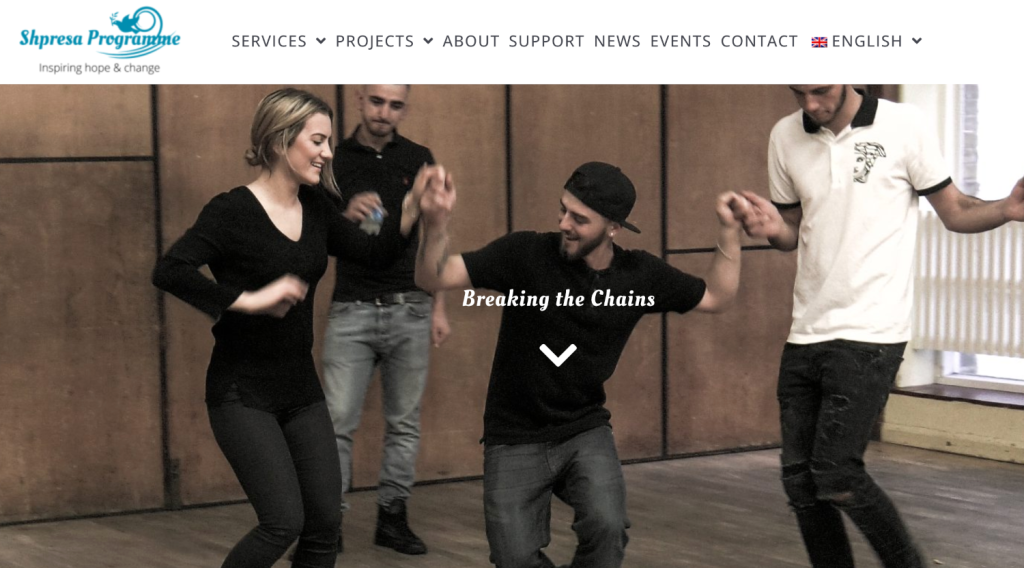During the final year of my LLB studies at City, I volunteered at The University of London’s Human Rights and Refugee Law Clinic. Although the UK was in lockdown due to COVID-19, the experience was amazing, and I thoroughly enjoyed everything despite the majority taking place online.
I have always had an interest in Human Rights because my parents were refugees from Kosovo. For this reason, I applied to work at the Clinic. In the future, I aspire to work as a solicitor ensuring that everyone is treated equally in our society and, I hope to change the negative stereotypes and mentality that haunts refugees and lower income families. I knew that working at this clinic would offer me the best first-hand experience I needed to build my skills for the future goals I had!
I was extremely honoured to be one of five City students chosen to work at the Refugee Law Clinic!
What does the University of London’s Human Rights and Refugee Law Clinic do?
The clinic’s main legal focus is on advising and preparing Further Submissions for Asylum (‘Fresh Claims’). This is an area identified as under-serviced in the current legal landscape!
Submitting a ‘fresh claim for asylum’ is the process by which a declined asylum-seeker seeks to advance further representations to make a fresh claim on the basis of important new factors (such as changed circumstances, additional evidence, etc.). A successful fresh claim can lead to a grant of refugee status or humanitarian protection.
My experience:
My role at the clinic was a Student Legal Advisor. This involved working pro-bono alongside a supervising barrister to prepare fresh claims for asylum seekers.
My responsibilities at the Clinic included:
– Preparing fresh claim submissions for asylum seekers
– Gathering evidence, interviewing clients and taking witness statements
– Drafting submissions for fresh asylum claims
– Researching relevant areas with a focus on Human Rights and Refugee Law
The training:
In order to work at the Clinic and take on real cases, I had to receive intensive training over a few weeks on Human Rights and Refugee law and policy as well as in areas of practical legal skills, research and ethics. The training was extremely interesting, and I learnt so much throughout the training sessions. The clinic provided me with lots of important and useful materials, despite the training taking place online (Thanks Covid!!).
They were extremely organised and offered us so much in the way of invaluable knowledge and skills which not only can I apply to Refugee Law, but I can use in any field of the legal sector in the future. I really enjoyed the way everything was organised, the content we had to read and the videos they filmed for us to watch, as well as the amazing live group sessions!
The clinic staff also made sure we had a session dedicated to our own safety and health. This was about how a client’s traumatic experiences may cause us to experience depression or feel upset and how we can deal with these situations. I really thought this was extremely thoughtful of them to think about us too!
The Work:
Once the training was over and the clinic co-ordinators were happy with my skills and knowledge, I was able to officially start working at the clinic.
I was assigned a refugee client from Afghanistan and was given a lot of research to do about the area they had fled from. This was important to do because it would set the scene about the situation the client was in and being knowledgeable about the client’s background could help me build stronger evidence for their case.
After a few meetings with the clinic’s team and a lot of research, I was pleasantly surprised to have been invited by the supervising lawyer to visit the Clinic and work in-person. I had a meeting and initial interview scheduled with my client (Covid-safe of course!)
At first, I felt extremely nervous because I had never had a practical and real-life experience of working with a real client. I was worried that I’d make a mistake or look unprofessional to the supervising barrister and client. However, once the client interview began, I realised there wasn’t much to worry about as the training had really prepared me for everything. The meeting was fairly straight forward and involved me telling the client about the Clinic and how it works. I explained what my role was as a student advisor and the way in which the Clinic operates so the whole process would be clear for the client. I then asked the client questions about their background, their story and situation. I was able to learn about the difficulties the client was facing with adapting to life in the UK and I quickly learnt how disadvantaged and mistreated refugees and asylum seekers were in the UK. I then ended the meeting by allowing the client to ask any questions they had and did an identity check. The only difficulty I had was communicating with the translator via Zoom which was not ideal however it all worked out in the end!
The client was extremely grateful for the work the clinic does and was very thankful that I was willing to work on the case pro bono. It felt really good to know that I was making a positive difference in someone’s life and that they recognised what I was doing. I always wanted to work in Human Rights & Refugee Law and this experience has definitely helped me decide on what I want to do in the future.
I then had a few more meetings with the client via phone call as the case developed due to London going back into lockdown. It was difficult to communicate via phone call as sometimes the line would cut off or the translator would not be heard well, however, these difficulties helped me better my professional and communication skills. I was able to experience the true ‘real working world’ which of course also has its ups and downs.
Extra events:
I especially enjoyed working at the Clinic because of the amount of knowledge I was able to gain. I engaged in the additional scholarly material that the clinic staff let me know about and I attended external events and workshops that the Clinic coordinators had recommended to gain extra skills for working at the Clinic.
One workshop was with Coram Youth Rights Trainers where I met 2 asylum seekers over Zoom who have already been through the asylum process. They told me about their experiences and gave me advice on how to behave when meeting a refugee. It offered me a good insight into how they truly feel and how I can approach a client/case properly.
I attended other workshops on the recommendation of the UoL Refugee Clinic (for extra preparation). These included: a series of conferences called ‘Breaking the Chains’ which occur monthly. It’s led by Shpresa Programme (an Albanian NGO) and also MiCLU (Migrant and Refugee Children’s Legal Unit) a specialist legal and policy hub based at the Islington Law Centre in London who represent young people who have been displaced by war, fleeing abuse, trafficked into the UK for exploitation and slavery, etc. The conferences were extremely interesting on a personal level for me as I am Albanian myself and, as I mentioned previously, my parents were refugees from Kosovo.
I would like to thank everyone at The University of London’s Human Rights and Refugee Law Clinic for the amazing experience over the past year and Ms Ffyon Reilly for believing in me and giving me the opportunity to work at the clinic!

I highly recommend applying to work at the clinic as the experience is truly wonderful and extremely interesting!!
Many thanks to Angjelina Ahmeti for this excellent account of her time on this project. She is currently an LPC LLM student at City Law School and aspiring solicitor, with a particular interest in Human Rights as well as in the developing practice area of Media Law.
[Note from Ed. Angjelina wrote this for Lawbore back in October 2021 in honour of Pro Bono Week. What happened to it then I am still trying to work out!!!]




